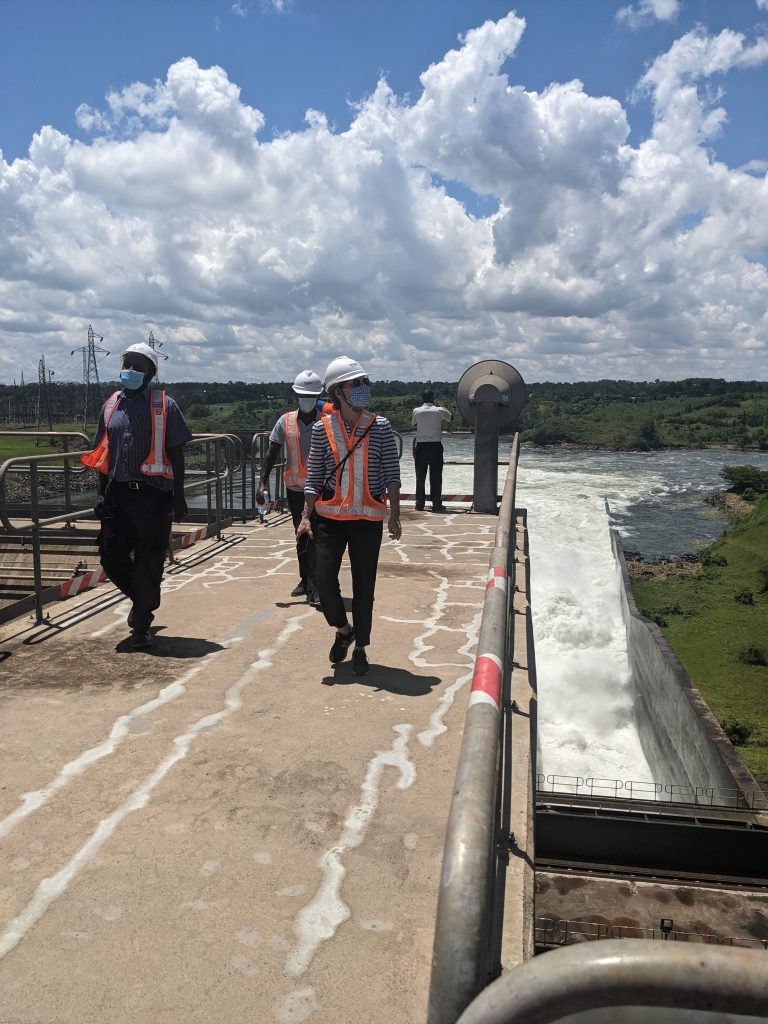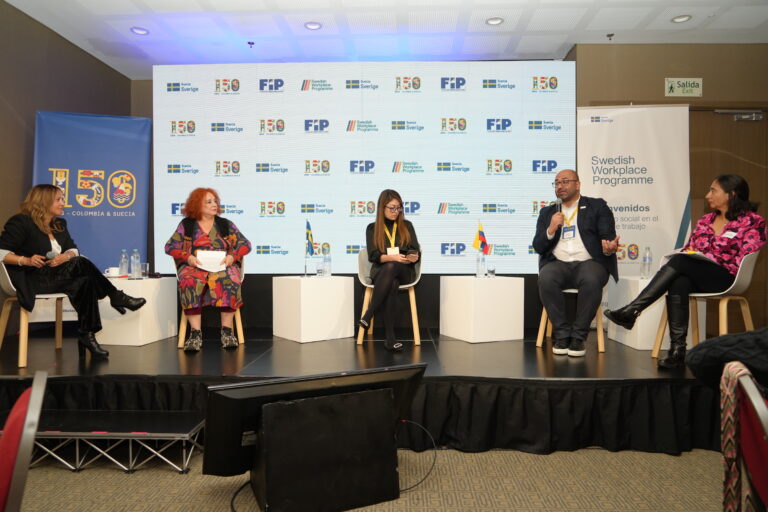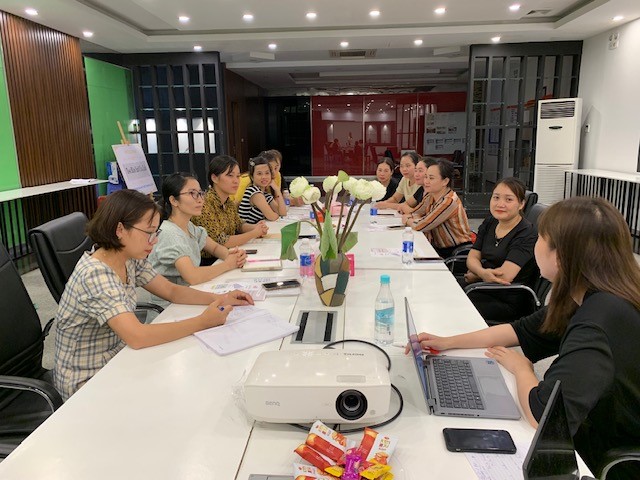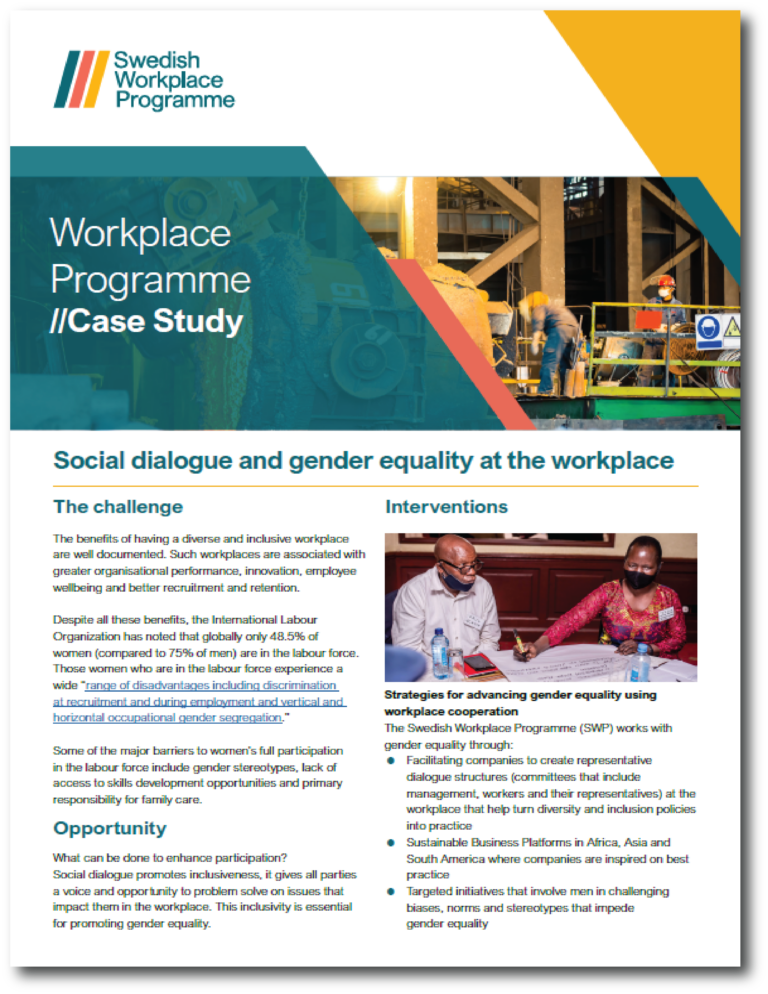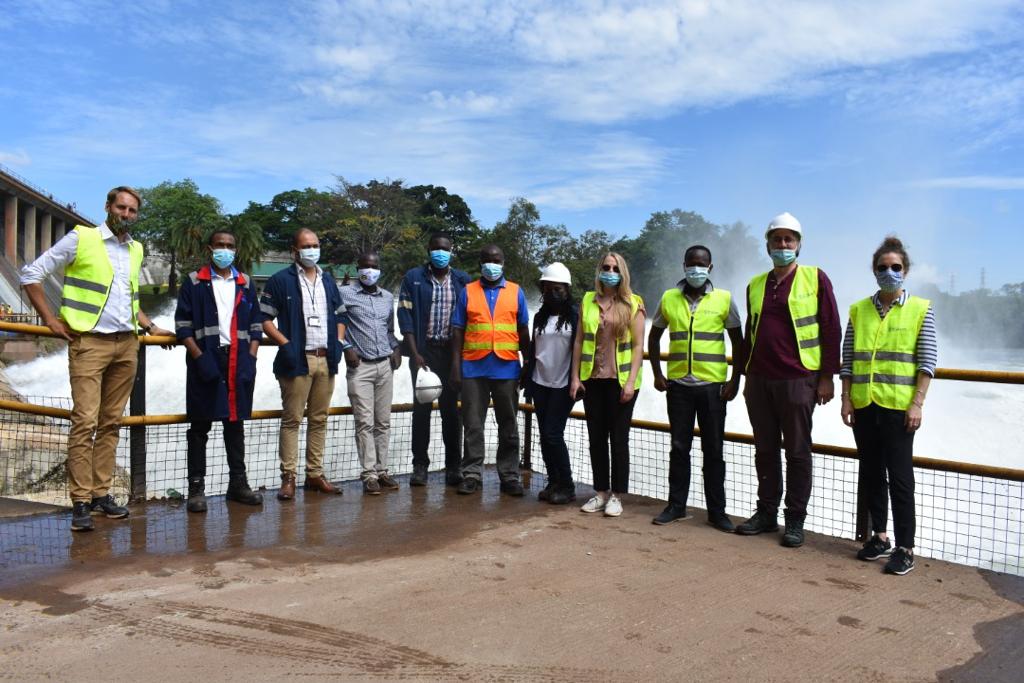
NIR colleagues Annie Ross and Lauren McIntosh visited Uganda to meet with NIR:s local partner Uganda Electricity Generation Company Limited (UEGCL) to support their plans for a floating solar park on a dam reservoir along the Nile River. NIR will provide capacity development to UEGCL through the Sustainability Impact Accelerator (SIA) programme to strengthen UEGCL’s capacity to take on this novel technology and implement a sustainable project.
NIR was joined by its technical advisors, Tom Walsh and Benjamin Mategeko from Renetech AB, which is a great example of a consultancy from the Swedish resource base that has knowledge of and experience in renewables and East Africa. NIR works in close collaboration with the Swedish Embassy in Kampala, Swedfund and Business Sweden to support the project. By providing UEGCL with targeted capacity development alongside a technical feasibility study that will be provided by Swedfund, UEGCL’s capacity to design and procure a sustainable and bankable project is increased.
Thank you to all our partners and foremost the Swedish Embassy in Kampala, which made the successful visit possible despite challenges during the ongoing pandemic. It is very encouraging that NIR can continue its development cooperation and support forces for sustainable development – now more urgent than ever.
Read more about the programme here.
